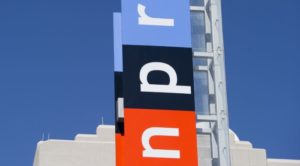
When you hear the word “school shooting,” you’d think that there wouldn’t be much to debate over what the means.
After all, when you hear the phrase, you immediately think of massacres like Columbine, Sandy Hook, or the recent Valentine’s Day shooting at Marjory Stoneman Douglass High School. But when you hear a network like CNN claim there have been over 20 or so school shootings just this year, it leaves one scratching their heads. After all, how the heck did we miss all those other shootings in the media? Are we to believe that our pro-gun control media is somehow missing the majority of public shootings?
They certainly aren’t. If you dig into CNN’s examples of “school shooting,” they’re taking a literal interpretation of the phrase. In other words, any case of a gun being discharged near a school (including BB guns) is counted as a “school shooting” in their bogus statistics.
Unfortunately, our own government is just as bad at tracking school shootings as CNN. And even more surprisingly, it was the liberals over at NPR that discovered that.
According to their reporting, “This spring the U.S. Education Department reported that in the 2015-2016 school year, ‘nearly 240 schools … reported at least 1 incident involving a school-related shooting.’ The number is far higher than most other estimates. But NPR reached out to every one of those schools repeatedly over the course of three months and found that more than two-thirds of these reported incidents never happened.”
How many shootings could they actually confirm? Eleven of the 240 claimed. In 161 cases, schools or districts told NPR no incident took place, and in at least four cases, something occurred but it didn’t meet the government’s parameters for a shooting.

Sadly, these shootings (both real and imaged) have been used to push for more gun control. After the Parkland shooting (obviously not one of the fictitious shootings), Barack Obama’s former education secretary encouraged all students to boycott public schools until gun control was passed.
On the crazier end of the political dialogue, CNN’s Jim Acosta utilized similarly flawed statistics to erroneously claim that there have been over 1,500 mass public shootings since Sandy Hook, and CNN almost exclusively relies on exaggerated school shooting statistics. CNN has literally admitted that they’ve allowed student gun control activists to get away with lying on their programming, so it’s hard to not believe CNN’s own lies on the issue are intentional. How can we have a national discussion about gun control following a mass shooting, if we can’t even agree on what a mass shooting is?
All school shootings inevitably lead to a debate between stricter gun control and allowing for the greater opportunity for armed resistance. While the debate seemingly never ends in the media, it’s already been settled to those who’ve observed the facts.
In 1990, Joe Biden introduced the Gun-Free School Zones Act, which was eventually signed into law by former President George H.W. Bush. The law applies to public, private, and parochial elementary schools and high schools, and to non-private property within 1000 feet of them.
And the result? Look no further than the number of school shootings per year before and after the law took effect.

For most years before the 1990 gun free zones act, there were zero, one, or two shootings (at the maximum) every year. Now, there are the eleven or so that NPR is talking about.
For as much as these shootings seem unavoidable, we already had policies in effect that prevented them…. until 1990.
